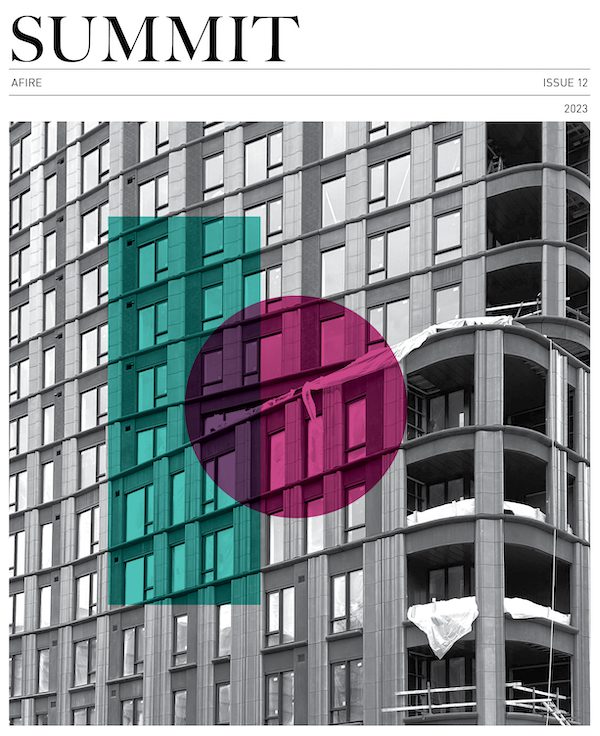Investors and asset managers that approach buildings with a global reach alongside local expertise help fuel unified property experiences across international portfolios.
Delivering a uniformly wonderful property experience across geographies and cultures can be a daunting endeavor without the right foundation in place. Investors and owners of regional or global commercial real estate portfolios face similar challenges as hotel brands when they seek to build value in their assets, particularly in times of uncertainty: How do they differentiate their properties for their guests and create an enduring appeal while consistently adding value?
For hotels, service is the bedrock of differentiation. Luxury hotelier Ritz-Carlton puts a symbolic $2,000 in every employee’s hand, every day, and encourages employees to use that money—or its equivalent in resources—to solve a guest problem without having to send the decision up the managerial flagpole. Embassy Suites, part of the Hilton brand that caters to business travelers, has embraced the “make it right” motto to consistently exceed guest expectations, whether that’s more choices for on-site dining or an evening reception that gives travelers the opportunity to mingle.
CRE owners also need to drive loyalty through compelling, consistent tenant and visitor experiences, while also making buildings more valuable through sustainable, efficient operations. Shifting to a coordinated property management approach can help deliver in these areas, if the approach is built on the four critical pillars of people, technology, flexibility, and sustainability.
Together, these fundamentals deliver the remarkable and nuanced experience that make a building or environment great.
PEOPLE FIRST, EVERYTHING ELSE SECOND
Having a global portfolio requires being attuned to different cultural expectations, societal shifts, work preferences, language and legislation barriers, and more. Investors and owners must enlist the right mix of people with global and local perspectives to fulfill the promise of their property. That means not only having the right individuals involved, but having the resources and market penetration to bring together unique viewpoints and areas of expertise, particularly where multiple asset types co-exist within a property.
From boots-on-the-ground staffing to behind-the-scenes strategists, the right property management solution employs a people-first mindset that is steeped in intercultural competence. When people are engaged through a hospitality-backed approach, they will be comfortable—and they will want to stay for the long term.
TECHNOLOGY DRIVES EXPERIENCES
In combination with experienced staff, technology can customize and improve tenant and visitor experiences while also providing new intelligence about property operations. While tenant experience apps expedite visitor registration and offer on-demand services for office and other workers, state-of-the-art technology infrastructure synchronizes systems—from internet access to parking and EV charging stations—to give visitors, tenants, and residents control over their experience across a mixed-use property.
Skilled property managers and innovative technology will ensure continuity in the building and give all people a seamless experience as they navigate every corner of the property.
One game changer is the implementation of an integrated approach across an entire portfolio of properties. When JLL expanded its strategic partnership with Manulife Investment Management in 2023, assuming property management and building operations responsibility for 195 office, industrial, multifamily, and retail properties across Canada, we knew there was a unique opportunity to bring together experts in management, proptech, and sustainability to drive technology innovation portfolio-wide.
First, Manulife Investment Management implemented a standard building operations and tenant experience platform across its entire portfolio. Consistent data collection, experience-based brand building and intelligent decision-making capabilities are just a few of the benefits of the technology, especially when combined with other core property management fundamentals.
By adopting a standard building operations and tenant experience platform across its entire portfolio, Manulife Investment Management will be able to create a data set that will inform a number of strategic pilot projects with JLL Technologies. Together, we are creating a virtual innovation lab involving various assets, with a special emphasis on implementing climate-positive initiatives that can be rolled out portfolio-wide to steer net-zero carbon performance by 2050.
TO STAY OR GO: FLEXIBILITY DRIVES OCCUPANCY DECISIONS
Today’s worker preferences are nearly unrecognizable from those reported just three to five years ago, and flexibility is the number-one priority as hybrid working continues to be popular. Global research on flexible space shows that 41% of tenants expect to increase their use of flex space in their near-term business strategy.1 Now, landlords must decipher the implications and processes for adding flexible space options to their buildings.
Allowing shorter leases, adding traditional flex operator spaces, and white-labeling a flexible space offering are all options that land on the desks of CRE owners and investors. Scaling the right solution across a portfolio must be done quickly and efficiently, as prospective tenants may not wait.
The move to flexibility has also led to more mixed-use properties, which require seamless connectivity among office tenants, consumers, multifamily residents, and the surrounding community. It falls to the property manager to establish and maintain operational, technical, and social connections and consistent experiences even as the property use evolves.
With more novel services in demand across property types, from pop-up shops to pickle ball tournaments, property management is evolving into experience management, aligning with property owners and end-users to shape desirable space with a clear purpose that engages the community, creates new revenue streams, and attracts and retains tenants. With no signs of slowing down, the move to flexibility will require a greater emphasis on hospitality, putting the property managers in the drivers’ seat for creating destination-worthy spaces.
CARBON CONFUSION
The pressure on building owners and investors to commit to more sustainable building management and construction practices is mounting. In fact, one driving force behind greener buildings continues to be occupiers with net-zero pledges. According to a JLL report, one-third of corporate real estate leaders in Asia Pacific are planning to exit carbon-inefficient buildings by 2025 as sustainability becomes an increasingly decisive factor in leasing criteria.2
Most building owners and property managers recognize the need to develop and initiate a net-zero action plan, but a confusing array of regulations, pathways, and metrics—constantly changing and varying from state to state and country to country—are holding up progress. Even establishing the baseline of a single property’s current carbon emission is a head-scratching exercise based on guesswork, and it’s particularly daunting for an entire portfolio.
Firms with a global mindset, and technological capabilities, have the real-time data, technology, and other resources to devise and implement an informed sustainability and decarbonization strategy, portfolio wide. Once the baseline emissions are established, AI-backed technology can be deployed to ensure that buildings perform at peak efficiency to meet net zero goals.
CENTRALIZED PROPERTY MANAGEMENT BENEFITS THE COMMERCIAL REAL ESTATE INDUSTRY
We are increasingly seeing a shift to coordinated property management as owners and investors seek to gain economies of scale and bolster margins across geographies and asset types.
In 2021, Ivanhoé Cambridge transitioned operations of its Canadian shopping centers to JLL, in part to align and standardize its business model globally and drive sustainable real estate goals.
One of the immediate benefits of this project was the establishment of a Centre of Excellence for Sustainability in CRE, located in Quebec, that would not only support Ivanhoé Cambridge’s sustainability efforts, but will help drive transformation throughout the CRE space. With an emphasis on speeding up the adoption of new processes, technologies, research ideas, and projects throughout retail, industrial, office, and multifamily segments, the Centre acts as a pipeline to fast-track development of new research, ideas, startups and scale-ups.
JLL has already leveraged the insights of the Centre with other global clients, including Manulife Investment Management, connecting the dots on collaboration and technology innovation that help drive successful programs.
EVERY PROPERTY CAN MEET THE GOLD STANDARD
Whether a real estate portfolio contains multifamily, office properties, malls, or warehouses, the most important lesson is that buildings must be operated in a way that builds value, especially if that value is derived from a standout experience that people covet.
Bringing hospitality lessons to bear and backing them with the best people, technology, and sustainability solutions is the most direct path to a successful investment property. A single-source property management solution with the depth of experience and global resources will illuminate that path with opportunity.
EXLORE THE FULL ISSUE

ALSO IN THIS ISSUE
AFIRE INTERNATIONAL INVESTOR SURVEY: Q1 2023 PULSE REPORT
Gunnar Branson and Benjamin van Loon | AFIRE
VALUATION CHALLENGE: SOLVING THE CRISIS IN COMMERCIAL REAL ESTATE VALUATION
Matt Pomeroy, MAI and Jackie Bowie | Chatham Financial
CONVERSION CALCULATOR: LEGAL OR NOT, A DYNAMIC CITY WILL CONVERT UNUSED OFFICES
Jim Costello | MSCI Real Assets
UNDERWRITING ROADBLOCKS: CAN THE HOSPITALITY MODEL OF UNDERWRITING SAVE OFFICE VALUES?
Joshua Harris, PhD | Lakemont Group & Fordham University
VACANT SPACE: OFFICE-USING JOBS AND DEMAND INCONGRUITY
Stewart Rubin and Dakota Firenze | New York Life Real Estate Investors
HIKING TRAILS: SHOULD INVESTORS CONSIDER ALLOCATIONS TO FLOATING-RATE DEBT?
Dags Chen, CFA | Barings Real Estate
RECESSION PREPPING: HOW VULNERABLE ARE COMMERCIAL MORTGAGE INVESTMENTS
Martha Peyton, PhD | Aegon Asset Management
MEASURING GENTRIFICATION: USING DATA SCIENCE TO PREDICT THE IMPACTS OF GENTRIFICATION
Ron Bekkerman | Cherre + Donal Warde | Tenney 110 + Maxime C. Cohen | McGill University
THE FUTURE IS EUROPEAN: THEMES FROM THE OLD WORLD SHAPING US MARKETS
Brian Klinksiek | LaSalle Investment Management
CULTURE SHOCK: THE CHALLENGE AND IMPORTANCE OF TRANSLATING ESG ACROSS BORDERS
AFIRE ESG Committee
FINE TUNING: GLOBAL REACH AND LOCAL EXPERTISE CAN CREATE UNIFIED REAL ESTATE EXPERIENCES
Mark Zettl | JLL
ACCESSING SUCCES: EXPLORING DIVERSITY TRENDS IN REAL ESTATE TALENT
Zoe Huges | NAREIM
RESCUE CAPITAL: RESPONDING TO THE NEW REAL ESTATE REALITY
Andrew Weiner and Joshua M. R. Becker | Pillsbury
CONVEX CURVES: A REMINDER ON PRICE CONVEXIVITY AND CAP-RATE VOLATILITY
Joseph Pagliari, PhD, CFA, CPA | University of Chicago
IN MEMORIAM: ANDREA MARIE CHEGUT, PhD, MIT

—
ABOUT THE AUTHORS
Mark Zettl is President, Property Management, of JLL, a leading professional services firm that specializes in real estate and investment management.
—
NOTES
1. JLL. “The Future of Flex.” JLL, 2021, https://www.us.jll.com/en/trends-and-insights/research/the-future-of-flex.
2. JLL. “How governments are supporting the pursuit of greener buildings.” JLL, 8 Sep. 2021, https://www.us.jll.com/en/trends-and-insights/cities/how-governments-are-supporting-the-pursuit-of-greener-buildings.
—

